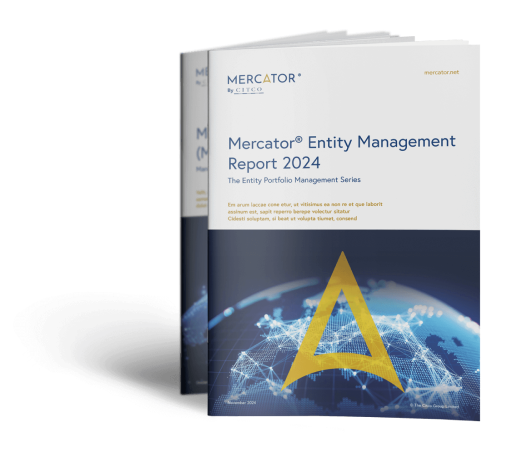The information contained in this document is marketing material and for informational purposes only. The information contained in this document is presented without any warranty or representation as to its accuracy or completeness and all implied representations or warranties of any kind are hereby disclaimed. Recipients of this document, whether clients or otherwise, should not act or refrain from acting on the basis of any information included in this document without seeking appropriate professional advice. The provision of the information contained in this document does not establish any express or implied duty or obligation between Citco and any recipient and neither Citco nor any of its shareholders, members, directors, principals or personnel shall be responsible or liable for results arising from the use or reliance of the information contained in this document including, without limitation, any loss (whether direct, indirect, in contract, tort or otherwise) arising from any decision made or action taken by any party in reliance upon the information contained in this document. © The Citco Group Limited, December 2024.
What you need to know about appointing a Data Protection Officer in Singapore
Organizations, being either multinational corporations or small local businesses, handle personal data in one way or another. The increased use of data comes with an increased risk of data breaches and privacy violations. As such, it is more important now than ever for organizations to take data protection seriously. One way of doing this is by appointing a Data Protection Officer (DPO) to help protect the data they collect, process and store.
In many jurisdictions across the world, only certain sizes or types of organizations are required to appoint a DPO. However, in Singapore, DPO isn’t a nice to have but a mandatory legal requirement for all businesses – big or small. Therefore is vital that business with operations in Singapore understand the role of a DPO and the consequences for non-compliance.
What is a Data Protection Officer?
Every organization that collects, uses or discloses personal data in Singapore is mandated by the Personal Data Protection Act 2012 (PDPA) to appoint a DPO to oversee data protection matters within the organization and to ensure that the organization is in compliant with the PDPA.
A DPO can either be an employee of the organization who takes on this role as one of the multiple responsibilities, or an external third party engaged by the organization. The DPO should have the appropriate expertise and knowledge on PDPA to effectively assist the organization in its compliance with the PDPA in carrying out its responsibilities.
Why is a Data Protection Officer important?
1) Protecting personal information and preventing data breaches
With the rise of digital technology, it has become easier for organizations to use, collect and store personal data. DPOs can help review data protection policies and procedures, identify areas of improvement and implement best practices to avoid data breaches which can have serious consequences for the organization resulting in loss of sensitive information, financial and reputational damage.
2) Boosting customer confidence
Strong data protection measures may help build trust between the organization and its customers and demonstrate the organization’s commitment to protecting personal data, resulting in customer loyalty and improved business performance.
3) Compliance with the PDPA
DPOs are responsible for the organization’s compliance with the PDPA and provide guidance on how personal data should be collected, processed, and stored, ensuring that data protection policies and procedures are in place and up to date and helping the organization avoid fines and penalties for non-compliance with the PDPA.
4) Point of contact between stakeholders
DPOs act as an important bridge between the organization, its customers and regulatory bodies such as Singapore’s Personal Data Protection Commission (PDPC), which administers and enforces the PDPA. DPOs can provide advice and guidance to the organization on data protection matters and ensure that any issues are addressed promptly and effectively.
What is the risk of non-compliance?
Singapore takes data security incredibly seriously. The PDPC will penalize organizations that fail to appoint a DPO, with fines typically ranging from $5,000 to $20,000 but with a maximum of up to $1 million. An enforcement can be brought even when a data breach has not occurred.
What next?
It is important that DPOs constantly keep abreast of the PDPA’s latest developments and guidelines. One way of doing so is to register the particulars of your DPO with the Singapore Accounting and Corporate Regulatory Authority’ (ACRA) via Bizfile+ (the online filing and information system of ACRA).
Raymond Ching
Senior Legal Officer, Mercator by Citco, Citco Singapore Pte. Ltd.

